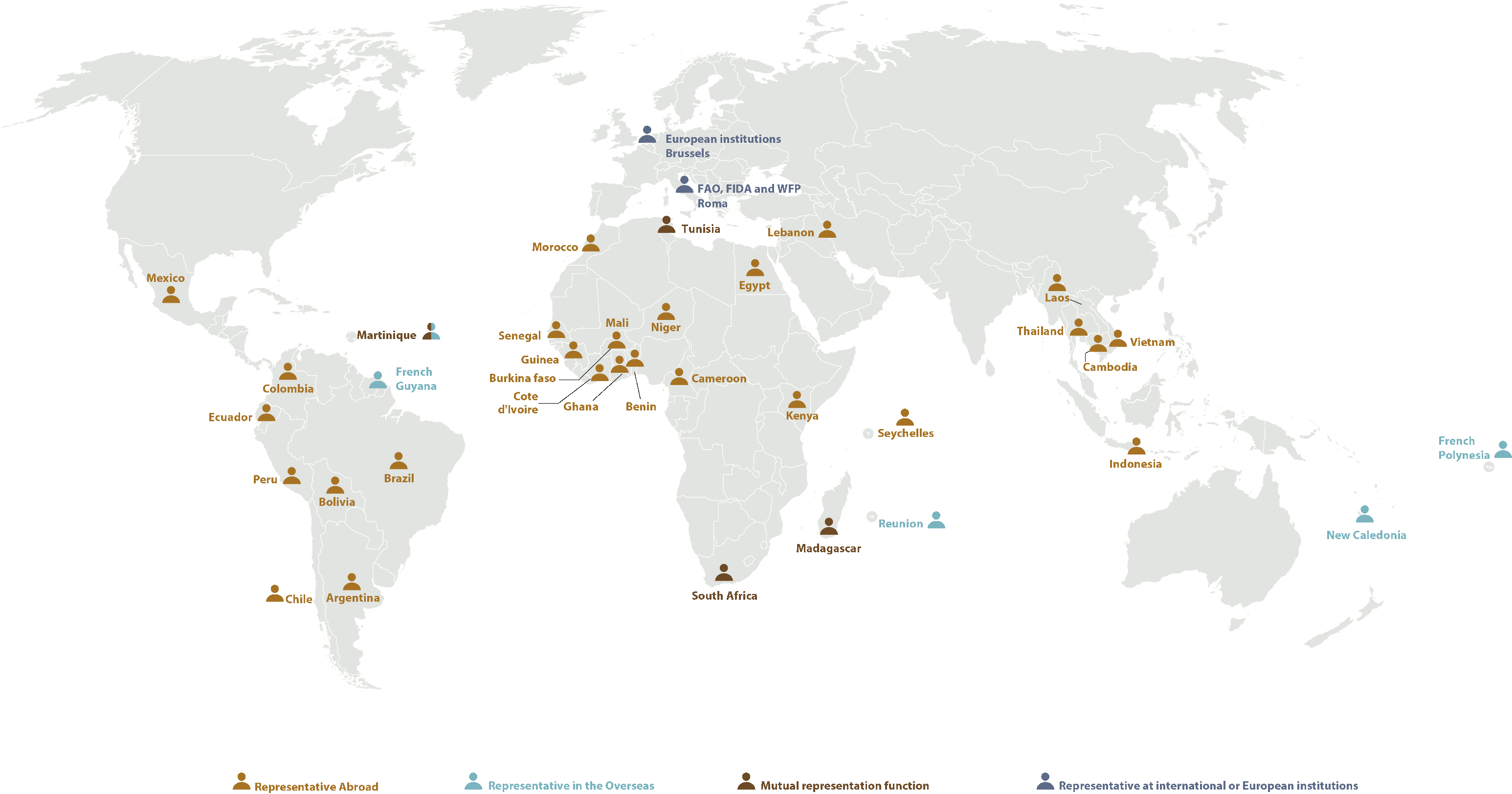The first mission of IRD and its network abroad and in the French overseas territories is to contribute through research to the emergence, strengthening and empowerment of scientific communities and higher education and research systems in the countries in which it operates, while striving to respond to the population’s requirements.
Sustained effort throughout 2018 allowed the continued adaptation of this network to the strategic and scientific directions defined in IRD’s Strategic Direction Plan. It also allowed optimisation of the network, in a spirit of mutualisation with other French operators and embassies. This meant savings could be made.
Launched in 2017 with the project of developing the network in order to implement the principle of equitable partnership, 6 scientific and strategic steering committees (CPSS) boasting both North-South and male-female parity were launched in 2018 (Cameroon, Indonesia, Thailand, Vietnam, Bolivia, South Africa), following Côte d’Ivoire, Tunisia and Senegal in 2017.
The The sharing of the representation role role was strengthened with the IRD-Cirad mutualisation in Martinique, for a total of 5 positions with shared representatives (South Africa, Ethiopia, Madagascar, Martinique, Tunisia).
In order to define the IRD roadmap for the Mediterranean, a regional meeting was held at the end of November in Tunis.
